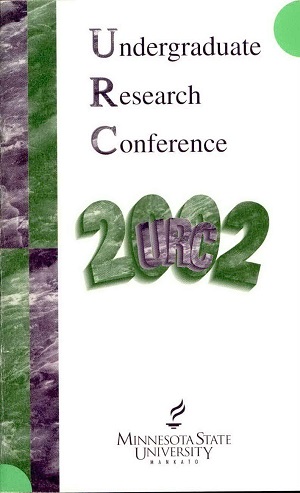The Comparison of Abandoned Utterances in Children with Williams Syndrome and Typically Developing Children
Location
CSU
Student's Major
Speech, Hearing, and Rehabilitation Services
Student's College
Allied Health and Nursing
Mentor's Name
Patricia Hargrove
Mentor's Department
Speech, Hearing, and Rehabilitation Services
Mentor's College
Allied Health and Nursing
Description
Williams Syndrome impacts physical, cognitive, behavioral, and motor development. The purpose of our research was to compare the occurrence of abandon utterances of children with Williams Syndrome to those of their typically developing peers. Our subjects consisted of six children with Williams Syndrome ages 10-17 years, and six typically developing children ages 3-8 years. Our procedure started by matching each typically developing child with a Williams Syndrome child. Matches were based on gender and language performance on the vocabulary subtest of the Kaufman Brief Intelligence Test. Each individual provided a sample of speech through the retelling of a story. The data was entered into a computerized language evaluating system known as the Systematic Analysis of Language Transcripts (SALT). Our results concluded that there was a significant difference of p =.032 and determined that children with Williams Syndrome have a higher probability of abandon utterances then their typically developing peers.
The Comparison of Abandoned Utterances in Children with Williams Syndrome and Typically Developing Children
CSU
Williams Syndrome impacts physical, cognitive, behavioral, and motor development. The purpose of our research was to compare the occurrence of abandon utterances of children with Williams Syndrome to those of their typically developing peers. Our subjects consisted of six children with Williams Syndrome ages 10-17 years, and six typically developing children ages 3-8 years. Our procedure started by matching each typically developing child with a Williams Syndrome child. Matches were based on gender and language performance on the vocabulary subtest of the Kaufman Brief Intelligence Test. Each individual provided a sample of speech through the retelling of a story. The data was entered into a computerized language evaluating system known as the Systematic Analysis of Language Transcripts (SALT). Our results concluded that there was a significant difference of p =.032 and determined that children with Williams Syndrome have a higher probability of abandon utterances then their typically developing peers.




